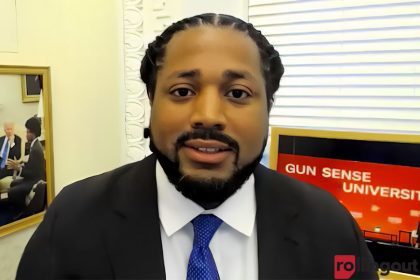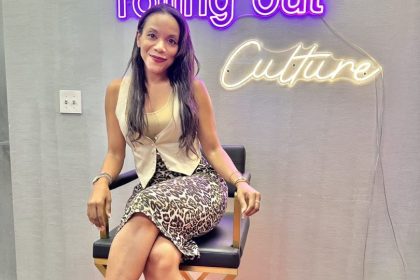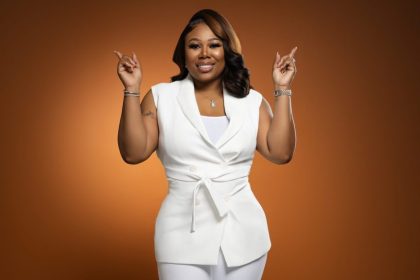Stephen Benjamin, a key figure in the Biden-Harris Administration, serves as assistant to the president, senior advisor to the president, and director of public engagement. With a background as the former mayor of Columbia, South Carolina, and leadership roles in national organizations, Benjamin brings valuable insights to the administration’s efforts on gun violence prevention. In this interview, he discusses recent initiatives and the importance of responsible gun ownership.
[Editor’s note: This is a truncated transcribe of a longer video interview. Please see the video for the extended version. Some errors may occur.]
What can you share about this gun violence week? What can we do as a community to change or pivot our mindset?
This week, we’re celebrating the first anniversary of the very first Office of Gun Violence Prevention that the White House has ever had. The president, in his leadership, established this office and appointed the vice president to lead the office, just recognizing what most Americans know, though some of us may refuse to accept that gun violence is a public health threat in this country. It’s the number one killer of our children, our young people, the number one killer, and that more and more needs to be done.
Now, the thoughtful, strategic policy and funding investments made by our president over the last three and a half, four years have made a significant difference. The FBI data came out just this past week, indicating a 17% drop in homicides over the last year, which is also a significant drop from the year before that. What we’re watching is a precipitous drop, and that’s not just by chance. That is because of strong investments made through the American Rescue Plan, the Bipartisan Safer Communities Act, and aggressive efforts to keep guns out of the hands of people under 21 years old.
On the anniversary and celebration that the president’s going to be signing an executive order today, as a matter of fact, focusing on some new measures designed to deal with issues around the modification of firearms. Folks have been able to fabricate in their basements using 3D printers that allow people to turn firearms into machine guns, for lack of a better term. And also, some new measures to improve school-based shooter drills.
This type of focus, advocacy and leadership is something that’s not new to Joe Biden. He’s been 30 years leader, a pass on the Brady Bill, leading on the first effort to ban assault weapons that we need to also renew, leading on the issue of background checks and enhance background checks for individuals. But there’s still so much work to be done. And I think we’re so thankful to have leadership from the president, vice president, arm in arm with not only public safety officials, but amazing community leaders all across this country who are doing the real work and cities and towns and counties all across this country to keep guns out of the hands of people who don’t need them and make sure that those of us who do own firearms are using them, storing them responsibly, and just being sensible and responsible, realizing that with these rights come responsibilities as well.
What would you share in a barbershop about Black men’s tempers and their relationship with guns?
Well, I’m not sure how you grew up, but I grew up in South Side Jamaica, Queens at the height of the crack epidemic in the 1980s. I’ve been on both sides of a firearm. I’ve been laid on in my young life, led the second-largest law enforcement agency in South Carolina. I know the immense power that comes with the ability to take life, and again, with the right comes responsibility.
So if, in fact, you’re going to own a firearm, people need to own them responsibly. People need to be trained on how to use them. People need to be trained to store them responsibly. If, in fact, you’re in some capacity where you’re authorized to use a firearm, then you need to make sure that you also understand the importance of de-escalation techniques and intermediate weapons, and ways in which you can work to aggressively preserve human life.
But I’ll just be real transparent: I’m a former law enforcement officer, I own firearms, and there are too many damn guns in the streets of America right now. When you have more guns than you have human beings, you’ve got a problem. And too many of those guns are in the hands of people who shouldn’t have them, and even those who might have them legally, hopefully are not using that right responsibly.
So, human life is precious. You only get one. And I think I’d tell the brothers in the barbershop—and you know, in the barbershop, we talk trash. I get my ball fade every week, we talk trash, but we understand because we’ve been so proximate to the carnage on our streets, maybe more so than anyone else in this country. We understand how finals things can be. So I encourage everyone: let’s just be thoughtful about how we use firearms, how we articulate the importance of firearms, and make sure we’re doing everything possible to protect our babies. They are the ones who are bearing the disproportionate burden from our country’s lack of collective focus on the preservation of human life by keeping guns off the streets and out of the hands of people who don’t need them.












